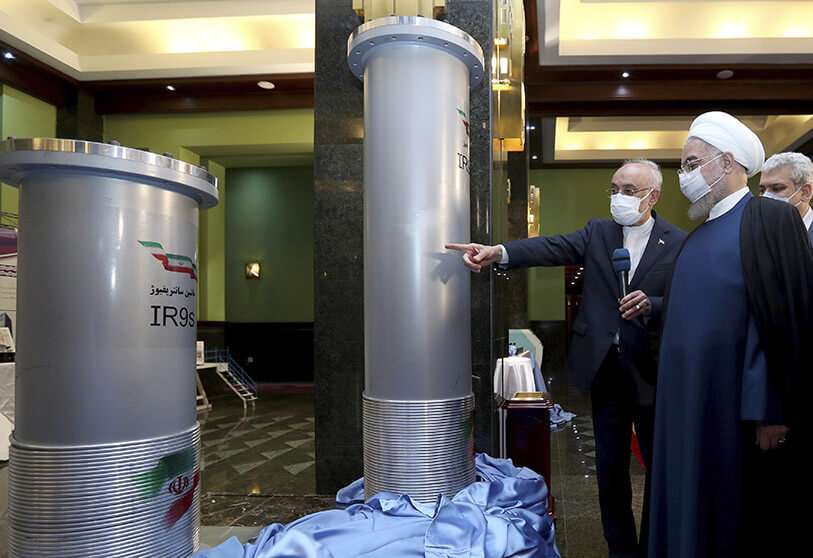Iran and US outline Washington's return to nuclear deal

A deal to bring the United States back into the Iran nuclear deal is "shaping up", negotiators said on Wednesday, citing progress in efforts to break the stalemate. Iranian nuclear negotiators, who concluded a new round of talks in Austria, reported "tangible progress" and said they saw a deal emerging.
Indirect negotiations between Washington and Tehran have been taking place in the Austrian capital since early April, with the five other signatories to the deal acting as intermediaries.
"We have made good progress," Enrique Mora, the European Union official who chaired the talks between Russia, China, Germany, France, the United Kingdom and Iran, said in a tweet after the talks. "We have made a lot of progress. A deal is in the making," the European diplomat, who is leading the discussions, said after the meeting. He added on Twitter that "there is now a common understanding on what remains to be done in the US" to return to the fold of the "Joint Comprehensive Plan of Action" (JCPOA), sealed in 2015 to prevent Tehran from acquiring the atomic bomb, but to which President Donald Trump closed the door in 2018.
"It is essential that Iran allow the IAEA to continue its necessary monitoring work," the E3 group said. "The agency's access is obviously essential to the success of our efforts to reinstate the JCPOA," it said, adding that "a deal is taking shape", adding that there were still things that needed to be worked out.
.

Iran has also said the talks are on the right track, with President Hassan Rohani commenting in a televised speech that they had taken "big steps" promising negotiations in the form of a "victory" for the sanctions-stifled "nation".
"On both the nuclear and sanctions sides, we are now beginning to see the contours of what the final deal might look like. This is different from the last time we broke," senior diplomats from the E3 group that includes France, Germany and the UK said in a statement. "However, success is not guaranteed. There are still some very difficult problems ahead. We do not underestimate the challenges ahead," they added. The diplomats added that we should not, however, "underestimate the challenges ahead" in the face of "the complexity of certain technical issues".
The two countries were indirectly invited to the discussions and must agree to lift sanctions reinstated by former US president Trump and the Islamic Republic's concomitant return to its nuclear commitments. The various parties to the deal, including Russia and China, will meet again early next week in the Austrian capital, but Iran will first have to extend the "temporary" agreement signed in February with the International Atomic Energy Agency, which expires this week.

While waiting for next week's meetings, Iranian representatives are holding separate talks with the International Atomic Energy Agency in Vienna on extending a three-month agreement that expires this week on the agency's inspections of Iranian nuclear facilities.
This bilateral technical text was announced on 21 February with a three-month expiry that allows the UN nuclear police to maintain on-site monitoring, albeit reduced since the entry into force of a new law limiting inspections. The Islamic Republic has pledged to provide all data from cameras and other tools if sanctions are lifted at the end of the period.
The goal is to find a way back to the agreement known by its acronym JCPOA, from which former US president Donald Trump walked away and which his successor Joe Biden wants to revive.
For that to happen, the US and Iran must agree to lift the sanctions reinstated by Trump and for Tehran to commit to the terms of the deal. Once Trump walked away from the deal, the Islamic Republic began abandoning restrictions on its production of nuclear material. Diplomats expect the US to get back on board before the Iranian presidential election on 18 June.








